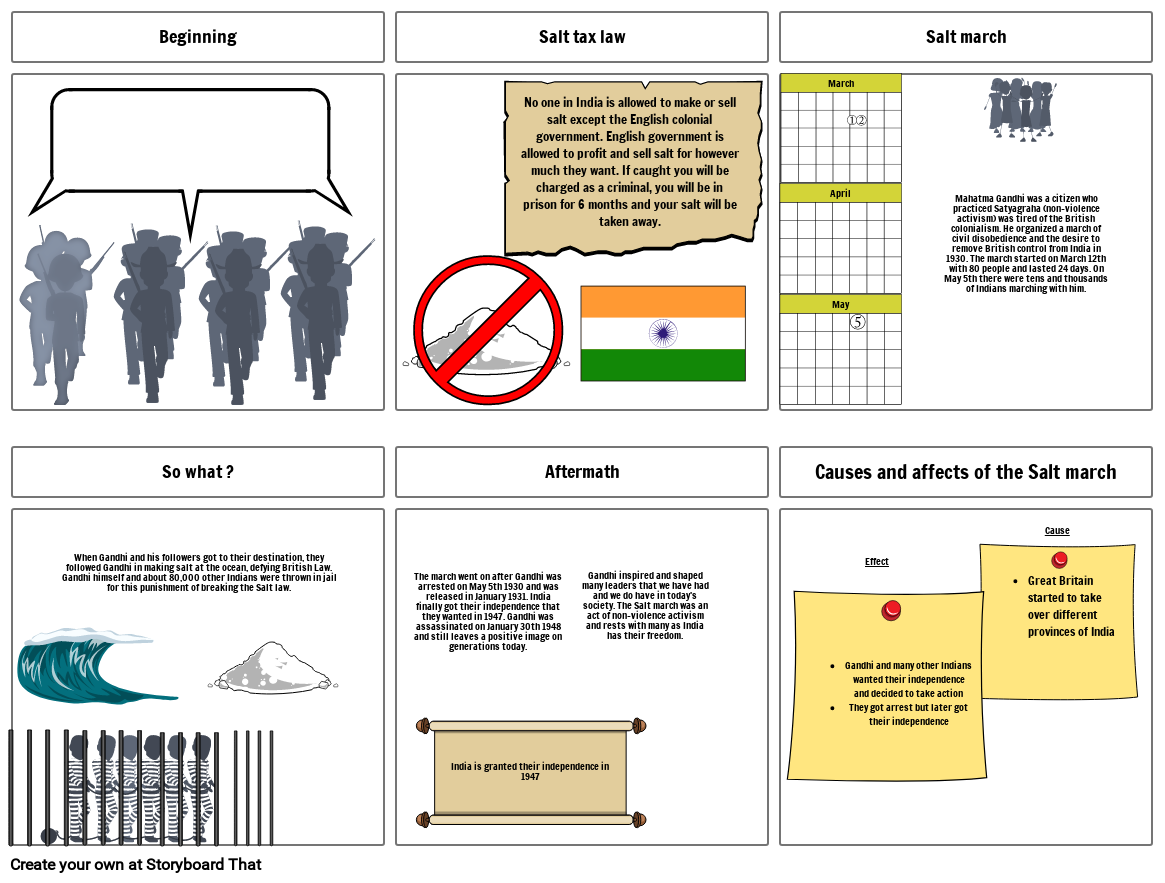Salt March

Storyboard Text
- Beginning
- Great Britain begins to take over different provinces of India in 1835, imposing a tax on salt in 1882 on Indians. Indians could not collect, produce or sell salt and if they did, they would be punished.
- Salt tax law
- No one in India is allowed to make or sell salt except the English colonial government. English government is allowed to profit and sell salt for however much they want. If caught you will be charged as a criminal, you will be in prison for 6 months and your salt will be taken away.
- April
- Salt march
- May
- March
- Mahatma Gandhi was a citizen who practiced Satyagraha (non-violence activism) was tired of the British colonialism. He organized a march of civil disobedience and the desire to remove British control from India in 1930. The march started on March 12th with 80 people and lasted 24 days. On May 5th there were tens and thousands of Indians marching with him.
- So what ?
- When Gandhi and his followers got to their destination, they followed Gandhi in making salt at the ocean, defying British Law. Gandhi himself and about 80,000 other Indians were thrown in jail for this punishment of breaking the Salt law.
- Aftermath
- The march went on after Gandhi was arrested on May 5th 1930 and was released in January 1931. India finally got their independence that they wanted in 1947. Gandhi was assassinated on January 30th 1948 and still leaves a positive image on generations today.
- Gandhi inspired and shaped many leaders that we have had and we do have in today's society. The Salt march was an act of non-violence activism and rests with many as India has their freedom.
- Causes and affects of the Salt march
- Gandhi and many other Indians wanted their independence and decided to take actionThey got arrest but later got their independence
- Effect
- Great Britain started to take over different provinces of India
- Cause
- India is granted their independence in 1947
Over 30 Million Storyboards Created
No Downloads, No Credit Card, and No Login Needed to Try!


